"Hide the matches from the children!" Or what (not) warns the Ministry of Health
Matchbox labels collectors are well aware of the beginning of the phrase in the title of this publication. This warning in various forms was often applied to the labels of small boxes in Soviet times. You can indignantly ask: "And where is it," Health Gika "and the same Ministry of Health?". - I will answer: "So, at first they say the saying, and the tale will be ahead ..."
The cause of the fire, which ravaged one of the private houses in San Leandro, California on Saturday was connected to the charging "hoverboard" ...
The US Consumer Product Safety Commission announced on January 20 the launch of an investigation into the safety of this popular toy, involving at least 40 fires in 19 states of the country. Amazon offers a refund to anyone who bought a hoverboard on his website.
It is believed that the fault lies with the lithium-ion batteries installed inside the product.
')
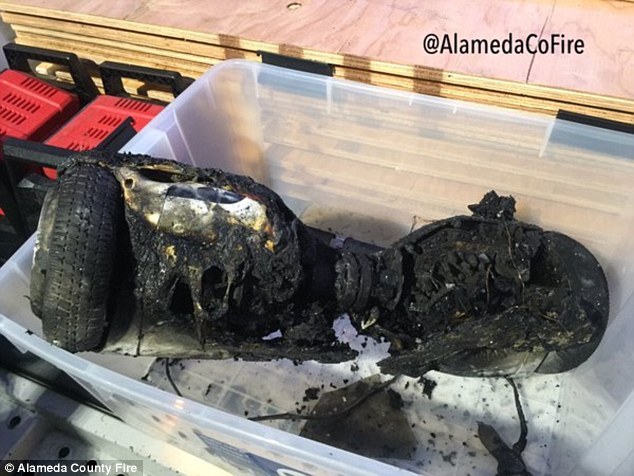
This snapshot, posted on Twitter by Alameda County firefighters, shows one of the hoverboards blamed for a series of US fires.
To those who did not recognize this product in the photo, we will explain that the hoverboards, which were among the most popular gifts in Christmas 2014, are a two-wheeled, battery-powered scooter.

Such a hoverboard allows riders to reach speeds of 16 km / h.
However, not only hoverboards, but millions of devices, from laptops to phones and e-cigarettes, are equipped with similar batteries. The best samples of devices using such batteries have special sensors that prevent batteries from overheating and overload, which reduces the likelihood of their ignition. However, most "non-branded" products do not have such security systems.
Leon Livermore of the Royal Institute of Trade Standards UK, said: “Irresponsible manufacturers often use high demand and try to flood the market with cheap and dangerous products. And buyers should not leave such devices unattended while charging. ”
That's just what to do with laptops and vacuum cleaners, robots, which remain in our homes while we are at work? Do not take them with you?
On January 27, 2016, the UN Aviation Commission recommended banning cargo shipments of rechargeable lithium batteries by passenger airliners, as batteries can create fires that can destroy aircraft.
The Air Navigation Commission of the International Civil Aviation Organization (ICAO) has proposed lifting this prohibition if new packaging is developed that provides an acceptable level of safety. However, the final decision requires the approval of the ICAO leadership. It is planned that the ICAO High Council will consider this issue at the end of February.
About 5.4 billion lithium-ion batteries were manufactured worldwide only in 2014. Most of them are transported on cargo ships, but about 30% are transported using aviation.
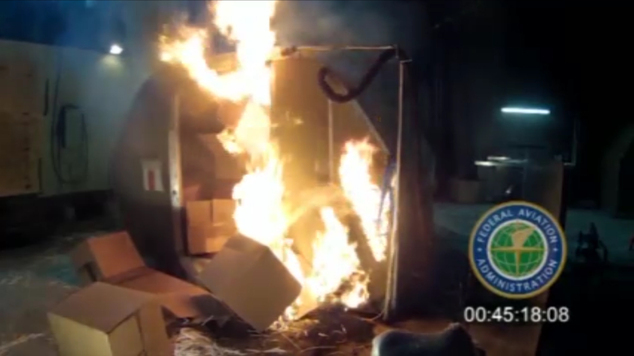
In this picture, you see a frame of a video provided by the Federal Aviation Administration of the United States (FAA) demonstrating a test performed in April 2015 by its technical center in Atlantic City.
The technical center simulated a fire in a freight container with 5,000 rechargeable lithium-ion batteries (photo AP / FAA). FAA tests show that a single damaged or defective battery can lead to an uncontrolled increase in temperature that can spread to the entire load. In the FAA tests, overheated batteries became a source of explosive gases, which were able to blow up the cargo container doors and destroy the cargo compartments of the aircraft.
The proposed ban will not affect cargo planes, despite the efforts of the International Federation of Aviation Pilot Associations. Security experts say that at least three cargo aircraft have been destroyed by a lithium battery fire since 2006. In these accidents killed four pilots. In March last year, an organization representing aircraft manufacturers (including Boeing and Airbus) told ICAO that airliners are not able to withstand the ignition of lithium batteries and continues to believe that the load of such batteries is an "unacceptable risk."
Six months later, it was decided in the US to support the ban. But battery manufacturers, trading companies and the International Air Transport Association are resisting strongly. They say that the risk is borne only by the products of “shadow” producers, mainly Chinese.
At the end of October 2015, the ICAO Group on the Transport of Dangerous Goods by 11 votes to 7 voted against the ban. The United States, Russia, Brazil, China and Spain, as well as organizations representing pilots and aircraft manufacturers, voted for it. The Netherlands, Canada, France, Germany, Australia, Italy, the United Arab Emirates, South Korea, Japan and the United Kingdom, as well as a commercial group of airlines, voted against.
But at least 20 airlines that fly on international lines voluntarily decided not to accept cargoes with such batteries anymore.
The US government strongly urged airlines to warn passengers not to pack spare lithium batteries in their luggage, as they could catch fire and cause a fire.
The FAA recommends reminding airline passengers that they will be fined if this ban is violated. It also turned to airlines, requiring flight crews and ground staff to report all fires, explosions, and incidents of charring, melting, or smoke caused by batteries or battery-powered devices. The FAA safety alert came a day after the Alaska Erline flight made an emergency landing due to the smoke of a card reader that had melted the batteries. None of the 184 passengers and five crew members was injured, and the smoke was extinguished by a fire extinguisher.
A man received terrible burns after a spare battery of an electronic cigarette exploded in the pocket of his pants.
David Yeo, 35, was at home with his girlfriend when the spare battery in his pocket suddenly caught fire.
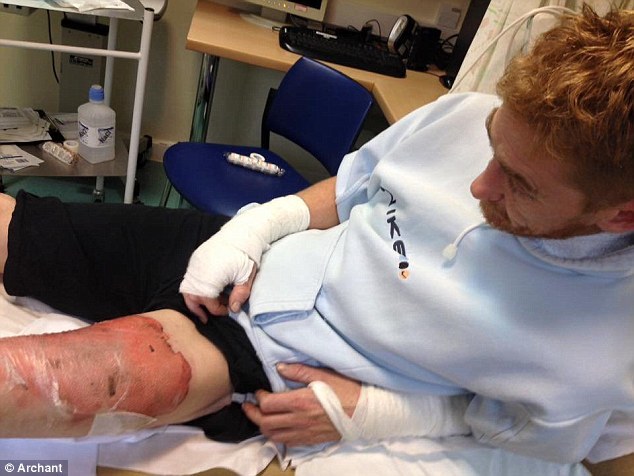
David Yeo got a third degree burn on his right leg and injuries to both arms.
Now he warns thousands of other e-cigarette users to be very careful. He said: “There was a strong explosion, and the flames shot straight from their pockets. It looked like a roman candle firework. I managed to rip off my jeans, but by then it was too late. I was very lucky that my friend was there. She knocked down the flames while I tried to take off my jeans. ”
Tom Pruen, a senior fellow at the Trade Association of the Electronic Industry, warned against storing batteries of electronic cigarettes near metal objects such as keys and coins. He said: “Pocket change can close the electrical circuit between the battery terminals, creating a short circuit, leading to overheating and even fire. This applies not only to batteries of electronic cigarettes, but also to all batteries with open contacts. In electronic cigarettes, battery terminals are closed, so this problem only concerns spare batteries. ”
But finally, and a tale associated with the Ministry of Health ...
A two-year-old girl in rural Oklahoma died two days after Christmas 2015, and doctors blame the small pill battery for that.
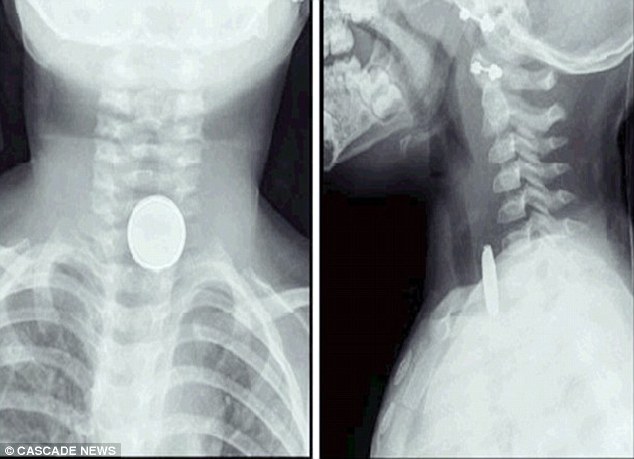
The baby's parents called an ambulance when the daughter started vomiting blood and turned blue. The baby was urgently taken to the hospital, she was immediately operated on, but she died. She was operated on, but doctors could not stop the bleeding. A battery burned through the esophagus and carotid artery.
Parents do not know how the baby swallowed the battery. Doctors believe that the little girl swallowed her for another six days of her death.
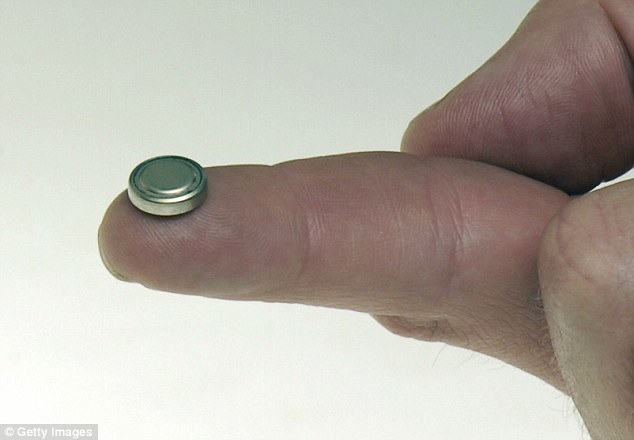
Experts say that batteries often pass through the esophagus and intestines without causing harm. Deaths occur when the battery gets stuck and releases an alkaline substance.
According to the National Capital Poison Center, from 2004 to 2014, 11,940 cases were registered in the United States when children swallowed batteries; in 15 cases, children died. There are several reports of the death of children in Britain and Australia. There are also reports of batteries swallowed by older people who confused them with their pills.
New cases of deaths and serious injuries in children who swallowed miniature battery-pills, led British doctors to launch a new propaganda campaign on the eve of Christmas 2015. This campaign included not only shocking photographs, but also a video of a miniature battery that burns hot dog stuff during an experiment that demonstrates what can happen in a child's esophagus. Batteries are commonly found in toys and gadgets (in car remote controls, TV remotes, musical greeting cards, talking dolls, etc.).
The goal of the campaign is to eliminate death and injury from the thousands of potentially deadly lithium batteries present inside the many toys that are given to children on New Year's Eve.
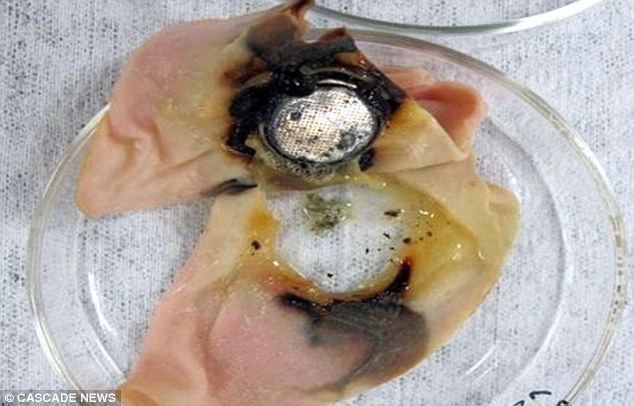
Experts put a battery in pieces of meat to demonstrate its likely effect on human flesh. The photo shows the results of such experiments.

After two hours, a small battery left charred marks on the sausage. The demonstration video shows that in just three hours after one of these batteries was inserted into a hot dog sausage, it completely burned the sausage. This clearly shows: the same can happen with human flesh.
When ingested, lithium batteries can cause a chemical reaction with saliva, with the release of alkali, which can burn through the walls of the esophagus and other organs.
Here is a description of one of these cases.
Mother Nicolas Shoesmith first noticed something wrong when Ellie started vomiting one evening in May 2014. But when Nicolas brought 18-month-old Ellie to her doctor, he said that it was just heartburn, and refused to send her for an x-ray.
Ellie continued to cry while feeding. Nicolas went to the doctor every 2 to 3 days for three weeks asking her to take an x-ray to her daughter, until he finally decided to send Ellie to the hospital. It turned out that Ellie urgently needed an operation. She had terrible burns of internal organs. After the operation, her mother was told that she was still at risk of fatal bleeding and would have to endure a whole series of debilitating operations to try to repair the damage.
Nicolas’s horror was aggravated by bewilderment: the damage was caused by something completely unexpected and seemingly harmless — a flat miniature battery that Ellie swallowed, obviously thinking it was tasty.
“It was a nightmare,” says Nicolas. “Ellie was finally discharged from the hospital in January, eight months after the battery was removed. I was very afraid that Ellie would die. I had no idea that swallowing a battery could cause so much damage. ”
Ellie needed a series of operations under general anesthesia to increase the width of her esophagus. She underwent another operation at Children's Hospital Manchester, two weeks after the battery was removed, and four operations over the next five months.
Only by September, Ellie's esophagus recovered enough to start eating solid food. “My doctor said that if the battery were stuck a little higher and closer to the artery, it would have died,” says Nicolas.
When a battery gets stuck, it comes into contact with the lining of the esophagus, and its electric current causes sodium hydroxide (caustic soda) to be released, causing terrible burns. Even after the battery is removed, the effect of alkali continues for some time. One child who stuck a pill-battery into his nostril of his nose was left forever with a damaged septum. It simply burned, despite the fact that the battery was removed after only a few hours.
How to protect yourself and what to do if the worst happens:
1. Do not allow children to take devices with tablet batteries if their battery compartments are not protected. Lock spare batteries.
2. Take the child to the hospital: if the child swallows the battery or is stuck in his nose or ear.
3. Do not let them eat or drink anything.
4. It is important to get to the hospital as soon as possible. The faster a battery can be removed, the less likelihood of irreversible damage.
5. Share this information: parents need to know what to do if the worst happens.
Although new batteries are more toxic, even those that have stopped working are dangerous. It is necessary to store and dispose of them very carefully.
Back in December 2014 , the UK Government’s Department of Health sent a special information letter for distribution in nurseries, kindergartens and schools:
“Children under the age of six are most at risk, but severe injury can occur in any age group. The most serious cases are associated with new lithium batteries measuring about 20 mm. They can get stuck in the throat, where a battery can do immense harm for as little as two hours. Symptoms of swallowing the battery include nausea, fever and cough. But, parents should be aware that there may be no symptoms at the beginning or that the symptoms may be similar to other diseases, such as coughing or refusal from regular eating and drinking. It is extremely important to get to the hospital as soon as possible. ”
In this regard, a few words about the Ministry of Health. For many, it came as a surprise that Russia (suddenly) felt the “economic pressure” of the inefficiency of its health care system - this is the reason for the recent reforms that have stirred up both the doctors and the public. The Russian health care system does not have enough money, and the reformers decided to cut doctors. Moscow (the “financial crossroads of Russia”) even allocated additional (not provided for by the law) compensation to reduced employees. However, many specialists, including the well-known doctor (head doctor of city hospital No. 71 of Moscow) A.V. Myasnikov, say that it was more logical to start not with the reform of the health system, but with the reform of Russian medicine.
It is more important that medical education standards, diagnostic standards, standards and stop-lists for each type of surgical intervention appear. Even countries such as Brazil (“where there are so many monkeys”) and Mexico, to which Russians traditionally refer somewhat condescendingly, have such standards. And in Russia they are not. In fact, it is impossible that, as before, three different doctors could make three different diagnoses and prescribe three different treatment options. It is impossible for Russia (for commercial reasons or out of ignorance) to operate on something that has not been operated "in the West" for a long time. Doctors are obliged to constantly learn, and for this you need to know languages. As well as “in the West”, doctors must confirm that they have the necessary qualifications on a quarterly basis, taking tests, and every 3 years they must pass (informal) exams. Finally, medicine should be preventive medicine.
Since the end of the 20th century, non-communicable diseases have come to the fore in all developed countries. The WHO adopted (by the way, in Moscow) “Global Action Plan for the Control and Prevention of Noncommunicable Diseases 2013–2020” states: “The cost of inaction is much higher than the cost of action ... The economic impact of noncommunicable diseases in low and middle income countries is equivalent to their current gross domestic product ... Continuing failure to lead to an escalation of health care costs ... "
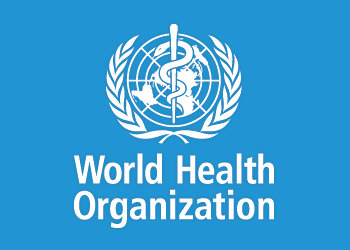
Further, in the “Global Plan ...” the only possible solution to the problem is indicated: “Goal No. 1 is to increase the priority of disease prevention . ” But, excuse me, what kind of prevention can we talk about, if no one tells Russians (unlike marketers, truthfully and clearly) even about the causes of mass (socially significant) diseases that can be avoided? Can we imagine that the Ministry of Health of the Russian Federation (please forgive me for the blasphemy of the words that will sound further) because of several children's lives will write and send a special information letter warning parents, educators and doctors?
Back in early 2015 (immediately after the publication of the information about the case of Nicolas and Ellie in the Daily Mail), we published this information in our health community on Vkontakte and tried to place it in other communities allegedly focused on ensuring the health of children. As a result, we were put on the “black lists” of these communities, and the links to the “Daily Mail” were immediately removed. As the saying goes: "Did not get through!". But, and a year later, we see that batteries continue to kill children around the world (I would like to think differently, but this is unlikely to happen in Russia). It would be good if our Ministry of Health reported about the Russians. Is not it? And it turns out that you need to act almost on the motto of the airborne troops: "If not us, then who?"

The cause of the fire, which ravaged one of the private houses in San Leandro, California on Saturday was connected to the charging "hoverboard" ...
The US Consumer Product Safety Commission announced on January 20 the launch of an investigation into the safety of this popular toy, involving at least 40 fires in 19 states of the country. Amazon offers a refund to anyone who bought a hoverboard on his website.
It is believed that the fault lies with the lithium-ion batteries installed inside the product.
')

This snapshot, posted on Twitter by Alameda County firefighters, shows one of the hoverboards blamed for a series of US fires.
To those who did not recognize this product in the photo, we will explain that the hoverboards, which were among the most popular gifts in Christmas 2014, are a two-wheeled, battery-powered scooter.

Such a hoverboard allows riders to reach speeds of 16 km / h.
However, not only hoverboards, but millions of devices, from laptops to phones and e-cigarettes, are equipped with similar batteries. The best samples of devices using such batteries have special sensors that prevent batteries from overheating and overload, which reduces the likelihood of their ignition. However, most "non-branded" products do not have such security systems.
Leon Livermore of the Royal Institute of Trade Standards UK, said: “Irresponsible manufacturers often use high demand and try to flood the market with cheap and dangerous products. And buyers should not leave such devices unattended while charging. ”
That's just what to do with laptops and vacuum cleaners, robots, which remain in our homes while we are at work? Do not take them with you?
On January 27, 2016, the UN Aviation Commission recommended banning cargo shipments of rechargeable lithium batteries by passenger airliners, as batteries can create fires that can destroy aircraft.
The Air Navigation Commission of the International Civil Aviation Organization (ICAO) has proposed lifting this prohibition if new packaging is developed that provides an acceptable level of safety. However, the final decision requires the approval of the ICAO leadership. It is planned that the ICAO High Council will consider this issue at the end of February.
About 5.4 billion lithium-ion batteries were manufactured worldwide only in 2014. Most of them are transported on cargo ships, but about 30% are transported using aviation.

In this picture, you see a frame of a video provided by the Federal Aviation Administration of the United States (FAA) demonstrating a test performed in April 2015 by its technical center in Atlantic City.
The technical center simulated a fire in a freight container with 5,000 rechargeable lithium-ion batteries (photo AP / FAA). FAA tests show that a single damaged or defective battery can lead to an uncontrolled increase in temperature that can spread to the entire load. In the FAA tests, overheated batteries became a source of explosive gases, which were able to blow up the cargo container doors and destroy the cargo compartments of the aircraft.
The proposed ban will not affect cargo planes, despite the efforts of the International Federation of Aviation Pilot Associations. Security experts say that at least three cargo aircraft have been destroyed by a lithium battery fire since 2006. In these accidents killed four pilots. In March last year, an organization representing aircraft manufacturers (including Boeing and Airbus) told ICAO that airliners are not able to withstand the ignition of lithium batteries and continues to believe that the load of such batteries is an "unacceptable risk."
Six months later, it was decided in the US to support the ban. But battery manufacturers, trading companies and the International Air Transport Association are resisting strongly. They say that the risk is borne only by the products of “shadow” producers, mainly Chinese.
At the end of October 2015, the ICAO Group on the Transport of Dangerous Goods by 11 votes to 7 voted against the ban. The United States, Russia, Brazil, China and Spain, as well as organizations representing pilots and aircraft manufacturers, voted for it. The Netherlands, Canada, France, Germany, Australia, Italy, the United Arab Emirates, South Korea, Japan and the United Kingdom, as well as a commercial group of airlines, voted against.
But at least 20 airlines that fly on international lines voluntarily decided not to accept cargoes with such batteries anymore.
The US government strongly urged airlines to warn passengers not to pack spare lithium batteries in their luggage, as they could catch fire and cause a fire.
The FAA recommends reminding airline passengers that they will be fined if this ban is violated. It also turned to airlines, requiring flight crews and ground staff to report all fires, explosions, and incidents of charring, melting, or smoke caused by batteries or battery-powered devices. The FAA safety alert came a day after the Alaska Erline flight made an emergency landing due to the smoke of a card reader that had melted the batteries. None of the 184 passengers and five crew members was injured, and the smoke was extinguished by a fire extinguisher.
A man received terrible burns after a spare battery of an electronic cigarette exploded in the pocket of his pants.
David Yeo, 35, was at home with his girlfriend when the spare battery in his pocket suddenly caught fire.

David Yeo got a third degree burn on his right leg and injuries to both arms.
Now he warns thousands of other e-cigarette users to be very careful. He said: “There was a strong explosion, and the flames shot straight from their pockets. It looked like a roman candle firework. I managed to rip off my jeans, but by then it was too late. I was very lucky that my friend was there. She knocked down the flames while I tried to take off my jeans. ”
Tom Pruen, a senior fellow at the Trade Association of the Electronic Industry, warned against storing batteries of electronic cigarettes near metal objects such as keys and coins. He said: “Pocket change can close the electrical circuit between the battery terminals, creating a short circuit, leading to overheating and even fire. This applies not only to batteries of electronic cigarettes, but also to all batteries with open contacts. In electronic cigarettes, battery terminals are closed, so this problem only concerns spare batteries. ”
But finally, and a tale associated with the Ministry of Health ...
A two-year-old girl in rural Oklahoma died two days after Christmas 2015, and doctors blame the small pill battery for that.

The baby's parents called an ambulance when the daughter started vomiting blood and turned blue. The baby was urgently taken to the hospital, she was immediately operated on, but she died. She was operated on, but doctors could not stop the bleeding. A battery burned through the esophagus and carotid artery.
Parents do not know how the baby swallowed the battery. Doctors believe that the little girl swallowed her for another six days of her death.

Experts say that batteries often pass through the esophagus and intestines without causing harm. Deaths occur when the battery gets stuck and releases an alkaline substance.
According to the National Capital Poison Center, from 2004 to 2014, 11,940 cases were registered in the United States when children swallowed batteries; in 15 cases, children died. There are several reports of the death of children in Britain and Australia. There are also reports of batteries swallowed by older people who confused them with their pills.
New cases of deaths and serious injuries in children who swallowed miniature battery-pills, led British doctors to launch a new propaganda campaign on the eve of Christmas 2015. This campaign included not only shocking photographs, but also a video of a miniature battery that burns hot dog stuff during an experiment that demonstrates what can happen in a child's esophagus. Batteries are commonly found in toys and gadgets (in car remote controls, TV remotes, musical greeting cards, talking dolls, etc.).
The goal of the campaign is to eliminate death and injury from the thousands of potentially deadly lithium batteries present inside the many toys that are given to children on New Year's Eve.

Experts put a battery in pieces of meat to demonstrate its likely effect on human flesh. The photo shows the results of such experiments.

After two hours, a small battery left charred marks on the sausage. The demonstration video shows that in just three hours after one of these batteries was inserted into a hot dog sausage, it completely burned the sausage. This clearly shows: the same can happen with human flesh.
When ingested, lithium batteries can cause a chemical reaction with saliva, with the release of alkali, which can burn through the walls of the esophagus and other organs.
Here is a description of one of these cases.
Mother Nicolas Shoesmith first noticed something wrong when Ellie started vomiting one evening in May 2014. But when Nicolas brought 18-month-old Ellie to her doctor, he said that it was just heartburn, and refused to send her for an x-ray.
Ellie continued to cry while feeding. Nicolas went to the doctor every 2 to 3 days for three weeks asking her to take an x-ray to her daughter, until he finally decided to send Ellie to the hospital. It turned out that Ellie urgently needed an operation. She had terrible burns of internal organs. After the operation, her mother was told that she was still at risk of fatal bleeding and would have to endure a whole series of debilitating operations to try to repair the damage.
Nicolas’s horror was aggravated by bewilderment: the damage was caused by something completely unexpected and seemingly harmless — a flat miniature battery that Ellie swallowed, obviously thinking it was tasty.
“It was a nightmare,” says Nicolas. “Ellie was finally discharged from the hospital in January, eight months after the battery was removed. I was very afraid that Ellie would die. I had no idea that swallowing a battery could cause so much damage. ”
Ellie needed a series of operations under general anesthesia to increase the width of her esophagus. She underwent another operation at Children's Hospital Manchester, two weeks after the battery was removed, and four operations over the next five months.
Only by September, Ellie's esophagus recovered enough to start eating solid food. “My doctor said that if the battery were stuck a little higher and closer to the artery, it would have died,” says Nicolas.
When a battery gets stuck, it comes into contact with the lining of the esophagus, and its electric current causes sodium hydroxide (caustic soda) to be released, causing terrible burns. Even after the battery is removed, the effect of alkali continues for some time. One child who stuck a pill-battery into his nostril of his nose was left forever with a damaged septum. It simply burned, despite the fact that the battery was removed after only a few hours.
How to protect yourself and what to do if the worst happens:
1. Do not allow children to take devices with tablet batteries if their battery compartments are not protected. Lock spare batteries.
2. Take the child to the hospital: if the child swallows the battery or is stuck in his nose or ear.
3. Do not let them eat or drink anything.
4. It is important to get to the hospital as soon as possible. The faster a battery can be removed, the less likelihood of irreversible damage.
5. Share this information: parents need to know what to do if the worst happens.
Although new batteries are more toxic, even those that have stopped working are dangerous. It is necessary to store and dispose of them very carefully.
Back in December 2014 , the UK Government’s Department of Health sent a special information letter for distribution in nurseries, kindergartens and schools:
“Children under the age of six are most at risk, but severe injury can occur in any age group. The most serious cases are associated with new lithium batteries measuring about 20 mm. They can get stuck in the throat, where a battery can do immense harm for as little as two hours. Symptoms of swallowing the battery include nausea, fever and cough. But, parents should be aware that there may be no symptoms at the beginning or that the symptoms may be similar to other diseases, such as coughing or refusal from regular eating and drinking. It is extremely important to get to the hospital as soon as possible. ”
In this regard, a few words about the Ministry of Health. For many, it came as a surprise that Russia (suddenly) felt the “economic pressure” of the inefficiency of its health care system - this is the reason for the recent reforms that have stirred up both the doctors and the public. The Russian health care system does not have enough money, and the reformers decided to cut doctors. Moscow (the “financial crossroads of Russia”) even allocated additional (not provided for by the law) compensation to reduced employees. However, many specialists, including the well-known doctor (head doctor of city hospital No. 71 of Moscow) A.V. Myasnikov, say that it was more logical to start not with the reform of the health system, but with the reform of Russian medicine.
It is more important that medical education standards, diagnostic standards, standards and stop-lists for each type of surgical intervention appear. Even countries such as Brazil (“where there are so many monkeys”) and Mexico, to which Russians traditionally refer somewhat condescendingly, have such standards. And in Russia they are not. In fact, it is impossible that, as before, three different doctors could make three different diagnoses and prescribe three different treatment options. It is impossible for Russia (for commercial reasons or out of ignorance) to operate on something that has not been operated "in the West" for a long time. Doctors are obliged to constantly learn, and for this you need to know languages. As well as “in the West”, doctors must confirm that they have the necessary qualifications on a quarterly basis, taking tests, and every 3 years they must pass (informal) exams. Finally, medicine should be preventive medicine.
Since the end of the 20th century, non-communicable diseases have come to the fore in all developed countries. The WHO adopted (by the way, in Moscow) “Global Action Plan for the Control and Prevention of Noncommunicable Diseases 2013–2020” states: “The cost of inaction is much higher than the cost of action ... The economic impact of noncommunicable diseases in low and middle income countries is equivalent to their current gross domestic product ... Continuing failure to lead to an escalation of health care costs ... "

Further, in the “Global Plan ...” the only possible solution to the problem is indicated: “Goal No. 1 is to increase the priority of disease prevention . ” But, excuse me, what kind of prevention can we talk about, if no one tells Russians (unlike marketers, truthfully and clearly) even about the causes of mass (socially significant) diseases that can be avoided? Can we imagine that the Ministry of Health of the Russian Federation (please forgive me for the blasphemy of the words that will sound further) because of several children's lives will write and send a special information letter warning parents, educators and doctors?
Back in early 2015 (immediately after the publication of the information about the case of Nicolas and Ellie in the Daily Mail), we published this information in our health community on Vkontakte and tried to place it in other communities allegedly focused on ensuring the health of children. As a result, we were put on the “black lists” of these communities, and the links to the “Daily Mail” were immediately removed. As the saying goes: "Did not get through!". But, and a year later, we see that batteries continue to kill children around the world (I would like to think differently, but this is unlikely to happen in Russia). It would be good if our Ministry of Health reported about the Russians. Is not it? And it turns out that you need to act almost on the motto of the airborne troops: "If not us, then who?"

Source: https://habr.com/ru/post/390531/
All Articles